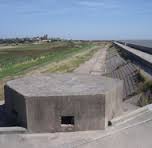Frinton and Hampstead have made the news recently as residents have sought extra patrolling for crime prevention. While the two cases are different, they do speak of a fragmenting policing landscape, writes Mark Rowe.
First, Frinton, the small Essex seaside town. AGS Security, based down the road at Clacton, is providing what it calls ‘a residential security service’, of patrols on foot and in liveried-police-style vehicles: “For as little as £2 per week, you get peace of mind in deterring, detecting and delaying criminal acts.” While Frinton is a notoriously quiet and conservative place, in the area AGS says that it’s responded to fights and drunkenness; deterred a couple of burglars (’later picked up by the police after a call from our guards’) and a youth vandal; and been first on the scene to a road collision. Two AGS guards talked a man down from the rocks on Clacton seafront. AGS Security owner Steve Beardsley said in praise of the guards: “They have had training from our company on potential risks, including suicide and potential suicides.” This is, frankly, not novel. In our November issue we featured Weston super Mare’s town centre wardens, who worked with police and the town’s public space CCTV to capture a thief; and in the BBC1 documentary Private Security, featured in our May issue, ProForce1 Security were doing police-style patrols in north London and Hertfordshire. So what’s new?
The official acceptance of such private security work in public space; that’s what’s new. Contrast that – and other police-style on-street patrols, for instance in north London by Shomrim London (the Hebrew name for ‘guards’) – with the harassment by police of efforts in earlier decades by private security companies, usually small, to provide police-style patrolling. An effort to funnel such private services was the CSAS scheme, which dated from the Police Reform Act 2002. Briefly, that Act enabled a chief constable to establish Community Safety Accreditation Schemes (CSAS), with the aim of vetting people and drawing together the so-called ‘wider police family’. As with anything left to chief constables, take-up was patchy.
While people asked for a weekly sum for private guards may have varying feelings – they may resent paying for a service they are already supposed to be getting from taxes; or they may see private security as necessary as private healthcare or private schools – the very fact that a guard firm can convince enough people to pay for patrols suggests a shortfall in the visible, perceived service already provided by police.
As Leicestershire Police say: “It is widely accepted that uniform presence on the streets and other public places has long ceased to be the sole preserve of police officers and public demand for uniformed foot patrols shows no sign of abating.” Might the ultimate solution be a surcharge on the rates for an official, police patrol, besides the other services, if a street, ward or county vote for it?
What has changed is that senior police officers – and the invention of the Coalition, the police and crime commissioners (PCCs), usually from one of the two main political parties – either are unwilling or feel unable to crack down on private police, even when they are doing police-style work; provided the private police don’t try to be public police by trying to take on police powers of arrest. More practically, it may be that police simply have too much to do, to ask too many questions of security officers doing good work on the geographical fringes as at Frinton, provided that security officers are SIA-badged (as AGS’ are) and are not complained about. Evidently the authorities are not insisting on CSAS, provided that security officers aren’t seeking to take CSAS-style powers, such as asking offenders for their name and address. In a word, the policing landscape has changed – those with authority in public policing feel they have to be more permissive of more overt private policing, if only for fear that voters (who voted in the PCCs on very low turnouts) might otherwise take offence.
Meanwhile, there’s austerity.
In Essex, around 83 per cent of the budget is spent on the salaries of police officers, PCSOs and police staff, the force reports. With £1m paying for 20 police constables for a year, what Essex Police term ‘financial challenges’ mean that the force’s workforce will become ‘significantly smaller’ over the next few years, it says. Essex like other police forces argues that police officers, not buildings, solve crimes and keep communities safe. Hence, even in August only Harwich, Clacton and Colchester in the east of Essex had police stations with ‘front counters’. From April 2016, the county’s 25 police stations will become ten; Harwich will go. Even with these proposed changes, Essex Police will still have significantly more front counter opening hours than other police services, the force says. Essex (and other) police reasonably point out that overwhelmingly, people say that they want to report crime and contact police by other means such as by telephone, email or online. The force says that it will look at ‘other ways of delivering face-to-face contact with police’.
Essex Police say: “Research shows that 80 per cent of crime is committed by 20 per cent of criminals, and Essex Police will continue to target the offenders who cause the most harm. However, in the face of significant budget cuts, there will inevitably be fewer police officers and PCSOs on our streets, and their work will need to be increasingly intelligence-led. Patrolling will be targeted, for instance on emerging hot spot areas or at closing time in our busy town centres.” As for the thought that community support officers are cheaper than constables, Essex proposes drastically cutting its PCSOs, from 250 to 60.
Picture by Mark Rowe: 1940 counter-invasion pillbox, Essex coast, looking north towards Frinton-on-Sea.









